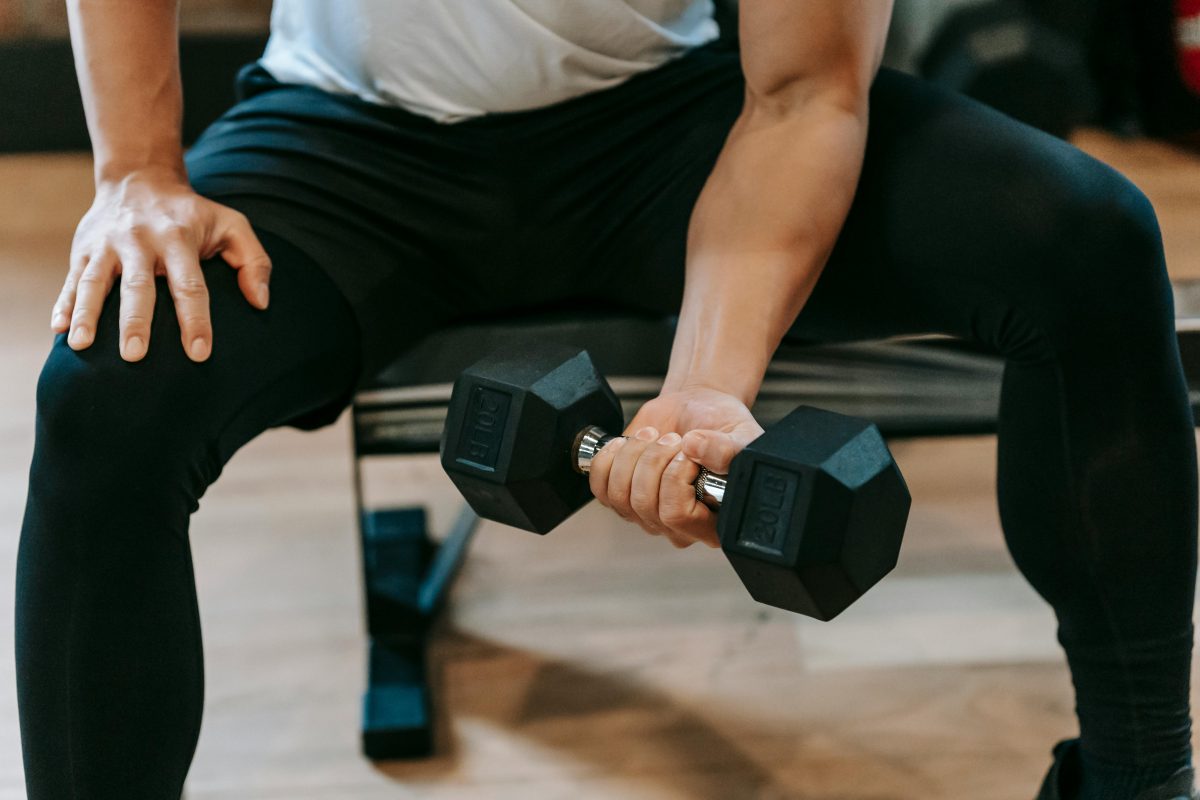Last Updated on: 14th July 2024, 10:56 am
Introduction to the Digital Fitness Revolution

The digital age has ushered in a transformative era for fitness enthusiasts worldwide. At the heart of this revolution are fitness apps, a technological leap that has redefined how we approach our health and wellness routines. These apps offer a plethora of features, from personalized workout plans to real-time health tracking, making fitness more accessible and engaging than ever before.
However, the key to truly benefiting from this digital fitness revolution lies in selecting the right app. With countless options available, it’s crucial to find an app that aligns with your personal fitness goals. Whether you’re looking to shed a few pounds, build muscle, or simply maintain a healthy lifestyle, the right app can serve as your digital coach, guiding you every step of the way.
- Choosing the right fitness app is not just about convenience; it’s about making a commitment to your health.
- The right app can motivate you, track your progress, and ultimately, help you achieve your fitness goals.
- In a world where time is of the essence, a well-chosen fitness app can be the difference between stagnation and transformation.
Understanding Your Fitness Goals

Embarking on a fitness journey begins with setting clear, achievable objectives. Identifying whether you aim to lose weight, gain muscle, or enhance your endurance is crucial. Each goal demands a unique approach, and, fortunately, there’s a plethora of fitness apps designed to cater to these specific needs.
- Weight Loss: Apps that track calorie intake and offer high-intensity interval training (HIIT) workouts can be particularly effective.
- Muscle Gain: Apps providing strength training and bodybuilding routines, along with nutritional guidance, are invaluable.
- Endurance Building: Apps offering running, cycling, and swimming programs, including features like goal setting and progress tracking, are great allies.
Choosing the right app goes beyond mere preference; it’s about aligning technology with your personal health aspirations. The perfect fitness app understands your goals and pushes you towards them, making the journey not just achievable, but enjoyable. In the vast sea of digital options, finding the one that resonates with your fitness objectives is key to unlocking your full potential.
Evaluating App Features and Functionality

Once you’ve honed in on your fitness goals, the next step is to scrutinize the features and functionality of potential fitness apps. This evaluation is crucial, as the right features can significantly enhance your fitness journey, making it more effective and enjoyable.
- User Interface and Experience: Look for apps with a clean, intuitive user interface that invites daily use.
- Variety and Quality of Workouts Provided: High-quality apps offer a wide range of workouts, from HIIT to yoga, ensuring there’s something for everyone.
- Customization Options: The best fitness apps allow you to tailor workouts and meal plans to your specific goals, preferences, and dietary needs.
- Tracking and Analytics Capabilities: Apps that offer detailed analytics provide valuable insights into your journey.
- Community and Social Features: Features like challenges, leaderboards, and social sharing foster a sense of community.
In conclusion, evaluating an app’s features and functionality is a critical step in choosing the right fitness app. By focusing on user experience, workout variety, customization, tracking capabilities, and community features, you can select an app that not only meets your fitness needs but also makes the journey towards your goals engaging and rewarding.
Assessing the Credibility and Expertise Behind the App

When diving into the sea of fitness apps, the credibility and expertise behind them become your lighthouse. The developers and fitness experts involved in creating the app play a crucial role. A strong background in health sciences, coupled with real-world fitness coaching experience, sets a solid foundation. It’s this blend of technical prowess and practical knowledge that brings reliability to the app.
- Scientific Basis: High-quality apps are grounded in evidence-based practices, ensuring that every squat, sprint, or stretch you do moves you closer to your goals.
- User Reviews and Ratings: High ratings and positive testimonials are strong indicators of an app’s effectiveness and user satisfaction.
- Real-World Effectiveness: Personal success stories and transformations shared by users can be incredibly motivating and provide insights into how the app could fit into your own fitness journey.
In conclusion, assessing the credibility of the developers, the scientific foundation of the workouts, and the real-world effectiveness through user testimonials is key. This triad of factors ensures that you choose an app not just with great features, but one that will truly guide you towards achieving your fitness goals.
Cost Considerations in Choosing a Fitness App

When navigating the vast ocean of fitness apps, understanding the cost implications is as crucial as assessing features or credibility. The financial investment in an app can significantly influence your fitness journey, making it essential to weigh free versus premium features, subscription models, and overall value for money.
Many fitness apps lure users with free features, offering a taste of what’s available. These often include basic workouts, limited tracking, and some form of community interaction. However, to unlock the full potential of the app, a premium subscription is usually required. This leap from free to premium can unlock a treasure trove of advanced workouts, personalized meal plans, and in-depth analytics.
Subscription models vary widely among fitness apps. Some opt for a monthly fee, while others offer annual plans at a discounted rate. Prices can range from a few dollars to upwards of $100 per year, making it important to compare what each app offers for its price. Consider not just the cost but the value it brings to your fitness journey.
Comparing value for money among leading apps involves a careful analysis of features, customization options, and the quality of content. An app with a higher subscription fee might offer extensive personalization, expert-led workouts, and a wide variety of fitness challenges, presenting a better value for those deeply committed to their fitness goals.
In conclusion, the right fitness app should align with both your health objectives and your budget. By carefully considering free versus premium features, subscription models, and overall value, you can choose an app that not only supports your fitness journey but also represents a wise financial investment.
Trying Before Buying: The Smart Approach to Selecting a Fitness App

Embarking on a digital fitness journey is an investment in your health, and like any savvy investment, it should begin with due diligence. The availability of free trials or demo versions of fitness apps is a golden opportunity to explore their basic features without any commitment. This initial test drive is essential, as it allows you to experience the app’s interface, workout styles, and additional resources firsthand.
Testing an app before fully committing to it is not just a matter of preference; it’s a critical step in ensuring that the app’s functionality aligns with your personal preferences and routines. It’s about finding that perfect digital companion that seamlessly integrates into your lifestyle, one that motivates rather than frustrates, and encourages rather than hinders.
- Compatibility: The importance of testing the app to ensure compatibility cannot be overstated. Your fitness app should be like a trusted partner in your health journey—supportive, compatible, and responsive to your needs.
- Trial Period Insights: A trial period reveals whether the app can truly keep pace with your daily life and fitness aspirations. It’s the difference between a fleeting flirtation with fitness and a lasting relationship that helps you achieve your goals.
In conclusion, taking advantage of free trials and demos is a wise strategy in choosing the right fitness app. It’s a practical way to gauge the app’s impact on your fitness routine and its potential to be a valuable ally in your quest for health and wellness.
Making the Final Decision

Choosing the right fitness app is akin to selecting a personal coach. It requires careful consideration of several key factors:
- Goals: Your fitness objectives should guide your choice, ensuring the app’s features align with your aspirations.
- Credibility: Look for apps developed by reputable fitness experts.
- Cost: Weigh the benefits of free versus premium features.
- Personal Trial: Offers invaluable insights into the app’s suitability for your lifestyle.
Flexibility is essential in this journey. Be willing to switch apps if your goals evolve or if the app no longer meets your needs. This adaptability ensures your digital companion remains a perfect fit, encouraging continuous progress towards your fitness goals.
Embarking on a fitness journey with the right digital companion is an empowering step. It’s a commitment to your health and well-being, promising a path filled with achievements and personal growth. Let the right fitness app be your guide, motivating you to push beyond your limits and explore new horizons in your fitness journey. The journey to better health is a marathon, not a sprint. Choose wisely, and let your chosen app lead you towards a healthier, more fulfilling life.
In Closing
Choosing the right fitness app transforms your health journey. It’s a commitment that brings joy and resilience. By aligning technology with personal goals, individuals embark on a path that balances challenges with profound rewards. This journey, supported by the right app, leads to empowerment, growth, and a healthier lifestyle. Embrace this digital companion and let it guide you to your fullest potential.
How to Choose the Right Fitness App FAQs
A fitness app can complement but not fully replace the personalized attention and expertise of a personal trainer. Apps can offer structured workout plans, tracking, and general guidance, which are beneficial for self-motivated individuals. However, personal trainers provide customized advice, motivation, and adjustments based on your performance, health, and feedback in real-time.
Evaluate the app’s effectiveness by checking user reviews, ratings, and any before-and-after success stories if available. These insights can give you a sense of how well the app has worked for others with similar fitness goals. Additionally, many apps offer a trial period during which you can assess its impact on your fitness routine and decide if it meets your expectations.
Fitness apps keep you motivated through goal setting, reminders, and rewards for achieving milestones. They often incorporate gamification elements like points, levels, and challenges to make the fitness journey more engaging. Regular progress updates and comparisons to past performances can also motivate you to keep improving.
The user interface is crucial as it determines how easily you can navigate the app and access its features. A clean, intuitive design makes it simpler to find what you need and keeps you engaged with the app over time. Poorly designed interfaces can lead to frustration and a higher likelihood of abandoning the app.
The level of personalization varies widely among fitness apps, from basic customizable workout plans to AI-driven recommendations based on your performance and feedback. More advanced apps can adjust your program based on progress, preferences, and any physical limitations you have. This personalization can significantly enhance the effectiveness of your fitness routine by tailoring it to your specific needs.
Not all fitness apps require equipment; many offer bodyweight exercises and routines that can be done anywhere. However, some apps are designed to be used with specific types of equipment or offer more variety in workouts when equipment is available. It’s important to choose an app that matches your available resources and fitness preferences.
Consider starting with a free fitness app to evaluate its effectiveness and ensure it meets your needs before investing in a paid version. Many free apps offer basic functionalities that might suffice for your goals, while paid apps typically provide more advanced features and personalized plans. However, investing in a paid app can be worthwhile if it offers unique features that align closely with your fitness objectives.
Look for features that align with your fitness goals, such as workout tracking, nutrition planning, and progress monitoring. These features help you stay on track and motivated by providing a clear overview of your achievements and areas for improvement. Additionally, social sharing options can offer extra motivation through community support and competition.
The best way to track progress is by using an app that offers comprehensive tracking features such as workout completion, strength improvements, body measurements, and visual progress through photos. These features allow you to see tangible evidence of your progress over time, which is essential for maintaining motivation and adjusting your fitness plan as needed. Additionally, some apps integrate with wearable devices for more accurate health and activity tracking.
Many fitness apps offer support in the form of FAQs, community forums, and direct contact with customer service. This support can be crucial for troubleshooting technical issues, understanding how to use the app effectively, and staying motivated. Some premium apps also provide access to fitness coaches or nutritionists for personalized advice.
Orlando is a all round athlete from Australia, now resident in Germany. His sports of passion of American Football(Offensive line), weight training and indoor rock climbing where he uses his 195cm wing span to his advantage.



